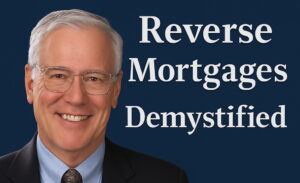
Seller Carry, Balloons & Better Outcomes
In this Financial Sandbox episode, Herb sits down with Dave Haupt, our resident Super CPA, to unpack real-world mistakes owners make when selling a business or property and planning a 1031 exchange.
What you’ll learn
- Outcome first, tools second. Max cash today, legacy for family, or max deferral? Your goal dictates the structure.
- Seller-carry gotchas. Balloon payments years later can create unexpected tax events outside your exchange plan.
- Team sport. CPA + QI + advisor aligned early = fewer surprises, better results.
- Right pro, right role. Fractional CFO strategy ≠ bookkeeping cleanup—hire accordingly.
- Service that communicates. Fast, clear responses from a 34-person, five-office team built to keep deals moving.
About David Haupt
Dave Haupt is a seasoned tax professional with expertise in tax planning, consulting, and compliance. As a trusted advisor to individuals and businesses, Dave leverages his extensive knowledge of tax law and regulations to deliver strategic guidance and solutions. With a passion for staying at the forefront of tax industry developments, Dave is dedicated to helping his clients achieve their financial goals. Outside of the office, Dave’s greatest joy is spending time with his loving wife and five children, and he’s grateful for the opportunity to balance his professional pursuits with his love for family.
~~
20250502 Dave Haupt Because investor situations and objectives vary this information is not intended to indicate that an investment is appropriate for or is being recommended to any individual investor. This is for informational purposes only and does not constitute an offer to purchase or sell securitized real estate investments. Such offers are only made through the sponsors Private Placement Memorandum (PPM) which is solely available to accredited investors and accredited entities. This material is not to be interpreted as tax or legal advice. Please consult your legal or tax professional regarding your individual situation. There are material risks associated with investing in real estate securities including the potential loss of the entire investment principal, illiquidity, tenant vacancies impacting income and revenue, general and real estate market conditions, lack of operating history, interest rate risks, competition, including the risk of new supply coming to market and softening rental rates, general risks of owning/operating commercial and multifamily properties, short term leases associated with multi-family properties, financing risks, potential adverse tax consequences, general economic risks, development risks, long hold periods, and investors should read the PPM carefully before investing paying special attention to the risk section. Risks associated with 1031 exchange- A 1031 exchange has an identification period of 45 days from the sale of the relinquished property to identify a potential replacement property or properties depending on the value of the previous property. To defer all capital gains tax, you must reinvest the entire net proceeds from the sale of the relinquished property into the replacement property and acquire debt on the new property that is equal to or greater than the debt on the property that was just sold and relinquished. DST 1031 proper es are only available to accredited investors (typically defined as having a $1 million net worth excluding primary residence or $200,000 income individually/$300,000 jointly of the last two years) and accredited en es. Securities offered through Concorde Investment Services, LLC (CIS) Member FINRA/SIPC. Advisory Services offered through Concorde Asset Management (CAM), an SEC registered investment advisor. Insurance products offered through Concorde Insurance Agency, (CIA). Thornwood Financial is independent of CIS, CAM and CIA.



